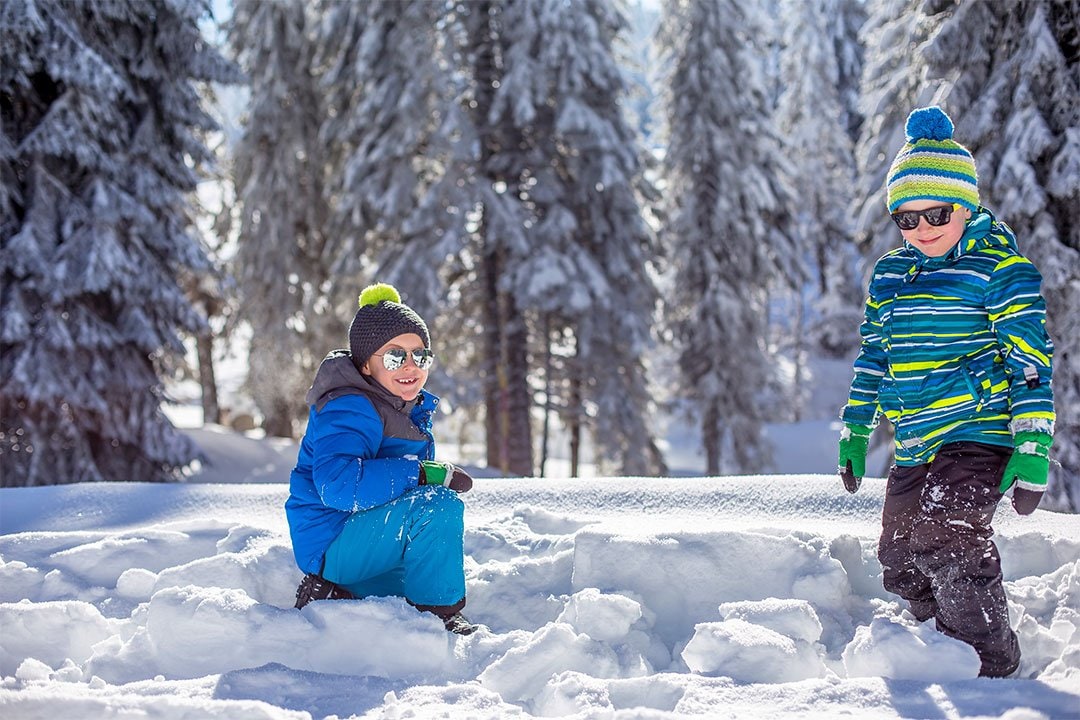Tips for Protecting Your Eyes in the Winter
 Many of us know to protect our eyes from the summer glare of the sun. Sunglasses are often a fashionable must-have at the lake or during outdoor activities. When winter hits, the reduction in daylight can leave us forgetting the important role of eye protection. In fact, eyes can be just as much if not more at risk in the winter than in the summer. Here are tips to keep your eyes safe and protected all season:
Many of us know to protect our eyes from the summer glare of the sun. Sunglasses are often a fashionable must-have at the lake or during outdoor activities. When winter hits, the reduction in daylight can leave us forgetting the important role of eye protection. In fact, eyes can be just as much if not more at risk in the winter than in the summer. Here are tips to keep your eyes safe and protected all season:
Add Moisture
Cold winds and dry air coupled with indoor heating can lead to dry eyes and discomfort. This can be especially challenging for those who wear contact lenses or suffer from chronic dry eyes—a condition where enough quality tears aren't produced. Use moisturizing eyedrops as needed and consider lowering the room temperature or running a humidifier in your home to add moisture to the air. Don't forget to stay hydrated with extra fluids and try to blink more often when you feel your eyes are dry.
Protect from UV Rays
Although we can't see it, we are exposed to UV radiation daily, even in overcast weather—something many of us forget when the temps start to drop. And because snow reflects almost 80 percent of UV radiation, your overall exposure is nearly doubled when skiing, snowboarding, shoveling or playing in the snow. High-quality sunglasses dramatically reduce glare to provide safer, more comfortable vision. Polarized lenses are particularly effective at shielding eyes from dangerous reflections.
Shield from Wind and Glare
Besides the risk of UV exposure, cold winds and bright glare are two more winter woes to be aware of. Dry, fatigued or itchy eyes can be irritating and potentially dangerous. Our eyes really need some type of shield protecting them. Wraparound sunglasses or goggles with a foam liner can be the best option to block out drying wind during winter activities. Polarized lenses will help to reduce the glare that is reflected off wet, icy or shiny surfaces.
Avoid Infections
This time of year is prime time for bacteria, flu and eye-related illnesses such as conjunctivitis (pink eye). The advice to avoid pink eye is the same as for avoiding colds: wash your hands often and avoid touching your eyes to protect yourself.
Use Extra Light
Lower levels of light in the winter can make reading and close tasks more difficult, especially for older people and those with existing vision problems. Try turning on extra lights and positioning light sources exactly where you need it most when possible.
Take Screen Breaks
If watching movies for hours on your laptop sounds like your ideal Minnesota snow day, remember to take regular breaks from your screen. Increased time spent in front of a computer, phone or electronic device can make your eyes become increasingly dry and irritated. Use the 20-20-20 rule: Every 20 minutes, shift your eyes from the screen to something at least 20 feet away for at least 20 seconds.
Winter can be especially harsh on your eyes. Following these tips can help make the winter months more comfortable. How you care for your eyes can help prevent long-term eye health problems in the future.